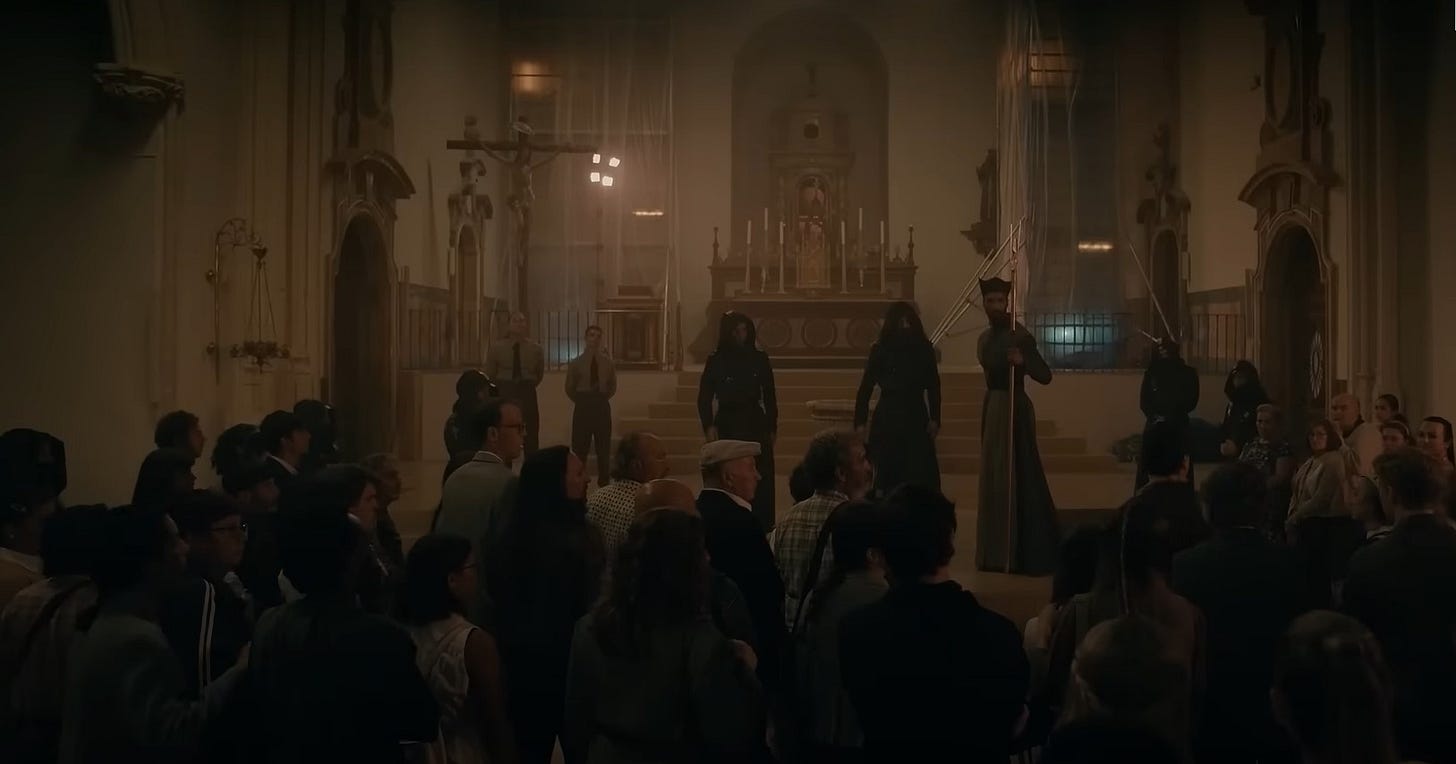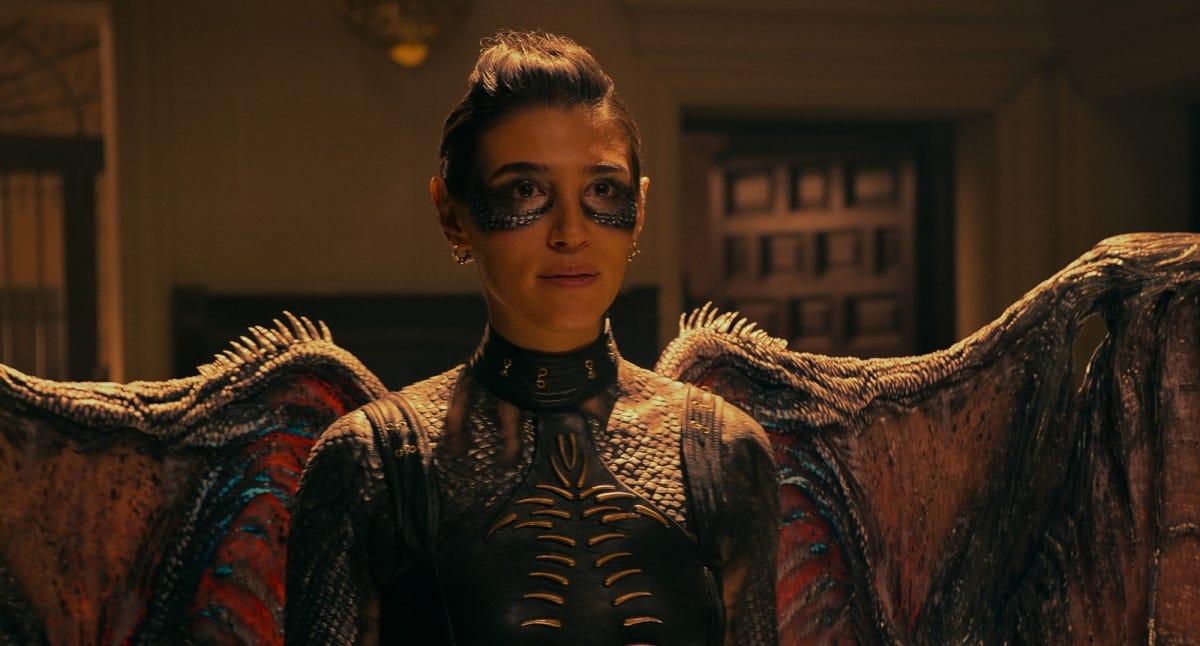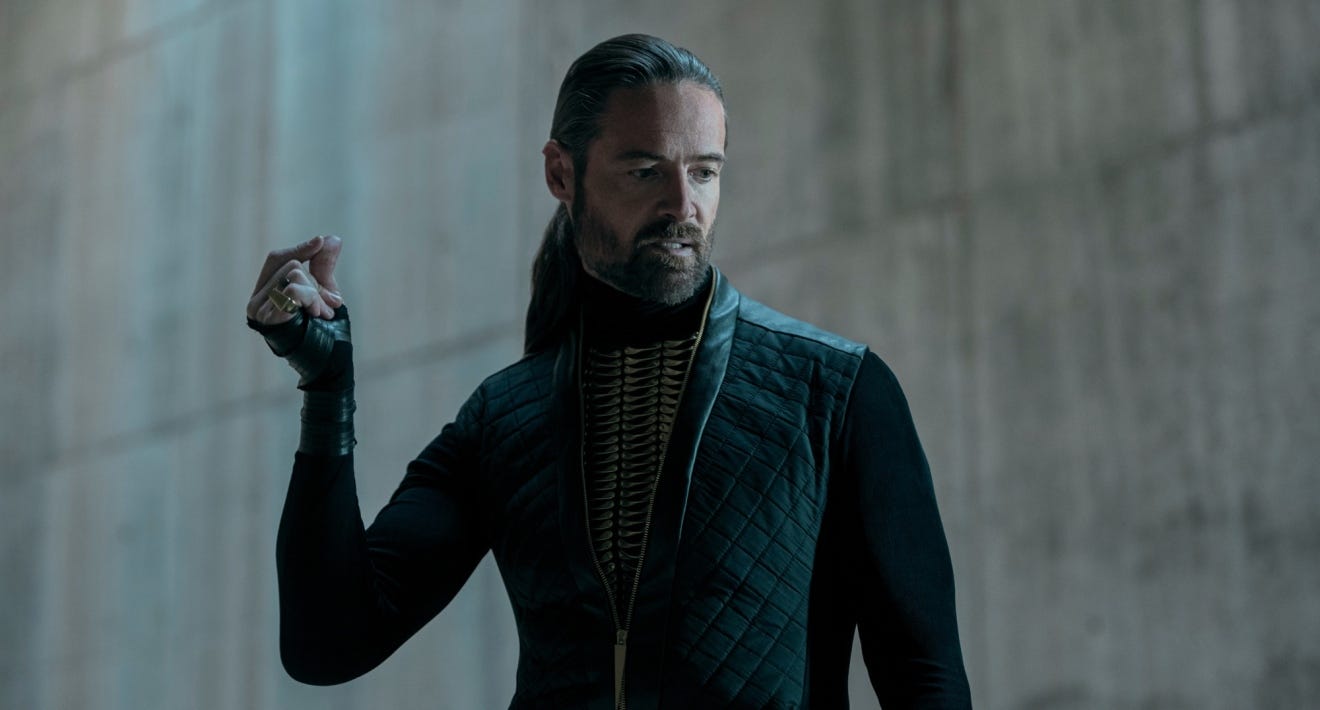The Best Of Nuns, The Worst Of Nuns
Let’s Talk Warrior Nun (2020)
This is not a review of Warrior Nun Season 2, but an analysis of the dynamics of religion at play throughout this season, and how they are a reflection of real life.
Throughout this season of Warrior Nun, there are four main archetypes of people who were susceptible to Adriel’s manipulation when he was cosplaying as God, which I categorized into four groups.
These archetypes are: Personal Agenda, Easily Impressionable, Led By Fear, and Vulnerable Targets.
(Jumpscare!)
For the characters with Personal Agendas, we see this mainly through the likes of Kristian and William. These are characters who are fueled by their desire to have money, power, or influence over others, and their service to Adriel is not founded on their faith or belief in their religious principles.
This concept is reinforced by William (2x07) when he tells Duretti that he was promised “a seat next to Adriel” in exchange for his devotion. William was already enticed by Adriel when he witnessed his display of power during their first encounter (him turning the glass of water into brandy). Him being promised a taste of that power is what sold him to being one of Adriel’s followers.
We see more examples of this dynamic with Kristian, who is obviously just very power-hungry and has no real depth besides that throughout the season.
(Jumpscare! x2)
It is also shown in micro-examples such as the First Born Children walking around with weapons, using intimidation tactics and recruiting people in the hopes of getting a higher rank in Adriel’s cult.
What makes this type especially dangerous is their willingness to ignore inconsistencies and hypocrisy in their practices, and do harm unto others, even going as far as killing people, despite that being a direct contradiction to what their God deems is righteous, all for the sake of having power and influence.
This is a direct parallel to how people in the real world, such as politicians and religious leaders, will blatantly disregard their own contradictions and hypocrisy, even going as far as lying and spreading misinformation that they know to be untrue (see 2x07 when Kristian kills Duretti with an electric pulse and spreads the narrative that he was smited by “God”), if only as a means to keep their positions of power.
Directly below them, we have the people who are most susceptible to falling for this misinformation: the Easily Impressionable.
This is shown mostly with minor characters throughout the season who will have short, brief instances with Adriel and/or his followers, and they will instantly start believing the information that is being fed to them without much question.
An example of this is the church-goers who witnessed a girl who could not walk being suddenly healed on the alter as the First Born Children chanted Adriel’s name (2x04), and they watched in astonishment as she could suddenly walk again.
They obviously could not see what we, the audience, could see, which was the girl being possessed by a demon, and that is how she was miraculously “healed”.
The issue is that these people are usually unlikely to question the why or the how of the things they witness, as they are too stunned by the wow-factor of it all, a direct parallel to how people will accept misinformation at face value (especially online), and then spread that information around for more people to be misinformed.
Similar to this dynamic, is the people who are Led By Fear.
The most obvious example of this archetype is the people who seek refuge during the plagues, specifically the plague that was a paranoia-inducing fog (2x04).
These people usually do have questions regarding the why or the how, however they are so paralyzed by their fear of what’s happening around them, or fear of being punished for questioning what they’re being told, that these thoughts never get voiced out loud, and remains as an internal conflict that they have.
We see this the most with Vincent throughout the entirety of the season, where he has an internal conflict about the things Adriel is doing that directly contradict his own faith. He is terrified of voicing these thoughts due to his fear of not wanting to be wrong about God and what he’s chosen to believe in.
The good thing about this types is once they have overcome their fear of whatever is holding them back from acknowledging these conflicts, they tend to start asking rational questions and realizing things aren’t as they have presented to be (see 2x07 when Vincent finally comes to the realization that Adriel isn’t who he says he is).
(tw - lizards)
The last type we have is the Vulnerable Targets. This is mainly shown through Lilith and other small characters throughout season.
While the most common vulnerable targets in Warrior Nun are children (see the girl getting possessed by a demon in 2x04 and the baby being possessed in 2x07), Lilith is vulnerable not because of her age, but because of what she desires.
Lilith’s storyline since the beginning of Season 1 has always been wanting to be accepted by her mother / making her proud, building her own legacy, and just being recognized for the attributes that are great about her.
Before Lilith spoke to Adriel, she had just been done being berated by her mother and looked down upon again. She was in an especially vulnerable position because of this. So when Adriel offered her support, words of affirmation, and the recognition she had always been craving from her peers, she was lured in fairly easily by Adriel’s deception.
On the other hand, Adriel incorrectly assumed that Camila would be a Vulnerable Target due to her age, and misinterpreted her age as a sign of being naive. Nothing about Camila’s actions towards him in the past would have indicated that to be the case, but Adriel still counted on the fact that she would be an easy target, and seemed quite smug when she reached out to him using a prayer (see 2x06 when Camila uses her link to Adriel to speak to him).
This is a direct parallel to people in positions of power in the real world preying on vulnerable demographics, usually children, to forward their agenda and feed them misinformation from an early age (i.e., telling kids to go to church or they’ll go to hell).
Warrior Nun season 2 does an excellent job of exploring these dynamics and showing different examples of how people can become taken advantage of when it comes to religion and how someone can can abuse these power dynamics for their own personal gain. For Warrior Nun that is Adriel, for our own world that is many different people, everywhere at once.
The most important lesson that can be learned from seeing this abuse portrayed in fiction is to remember to ask questions, and not let your fear of punishment, or even your fear of the unknown, stop you from questioning the moral and political aspects of religion (and even systems in place) around us.











